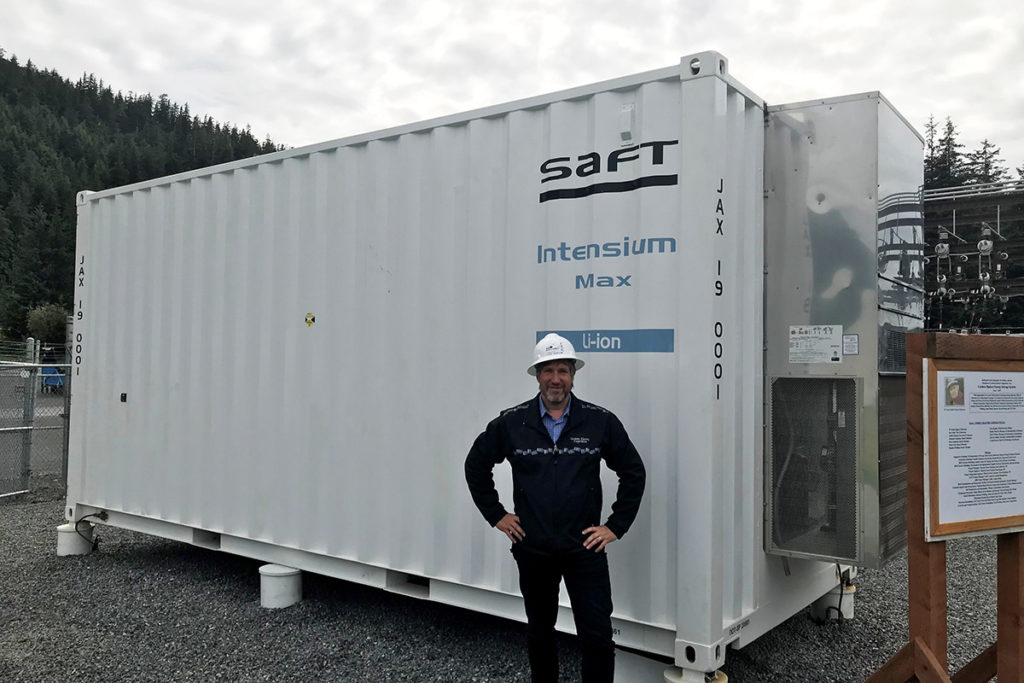
When Clay Koplin thinks about the escalating financial and environmental costs of fossil fuels and the unique needs, infrastructure and resources of the community his electric cooperative serves, he comes to a simple conclusion: “Alaska is made for beneficial electrification.”
Without the benefit of connection to the electric grid that serves the lower 48, the state’s many coastal villages rely on microgrids largely generated by diesel and hydropower to heat homes, run engines or serve spikey refrigeration loads when a huge catch of fish arrives.
“Cordova has a large fishing economy,” said Koplin, CEO of Cordova Electric Cooperative and the town’s mayor. “If electric use increases with air source heat pumps, EVs, marine and aviation transportation, it will save money and will take fossil fuels out of the electricity side of the equation.”
Koplin said he hopes to expand electricity use in the state by explaining its advantages with help from the Beneficial Electrification League and the launch of Electrify Alaska! in Cordova later this year. The conference, originally set for April 27-29, is being rescheduled due to national public health restrictions to address the coronavirus.
Beneficial electrification is the deployment of electric-powered devices where at least one of the following goals is met without adversely impacting the others: consumer savings, reduced pollution, grid resiliency and improved products and quality of life.
NRECA and the Natural Resources Defense Council formed the BEL in 2018 to advance these tenets across the utility industry and other energy-intensive sectors. The league has helped co-ops in several states organize and host Electrify conferences.
Cordova Electric Cooperative is also working to bring more electrification to the region’s transportation and home heating and cooling.
The co-op provides four free public electric vehicle charging stations despite there being only three EVs in the community of 2,300, said Koplin. CEC also loans a Nissan Leaf to members to test drive.
The co-op promotes the use of electric air source heat pumps, which can operate at a third of the cost of heaters that run on fuel oil in some coastal Alaskan communities, he said.
“It’s not just about cheap, abundant power but how we bring it to the home of the customer,” said Koplin. “We think more in terms of quality of life and value than price.”
Koplin said he’s installing a heat pump this year in his own home, and the local high school finance manager is acquiring one to start commercial indoor vertical gardening with the use of LED lighting.
“We did the math and she will save money using an air source” rather than a diesel boiler for the intensive light and heat project, he said. “This will be a game-changer for Cordova residents to grow vegetables inside year-round.”
As a bonus, attendees of the Electrify Alaska! conference will get a tour of CEC’s brand-new utility-scale battery system. The co-op received the ABB and SAFT custom-fit battery energy storage system, rated at 1 megawatt and 1 megawatt-hour, by barge last May and had it installed, programmed and fully automated within six months.
Koplin said the co-op is seeing the greatest value of the battery in balancing the intermittency of his territory’s wind and solar resources. Cordova was 76% hydropowered last year and 94% in November alone, he said. The amount of water flow being spilled rather than being used for generation is shrinking.
“Now, no diesel and very little hydropower is going to waste,” Koplin said.
Cathy Cash is a staff writer at NRECA.